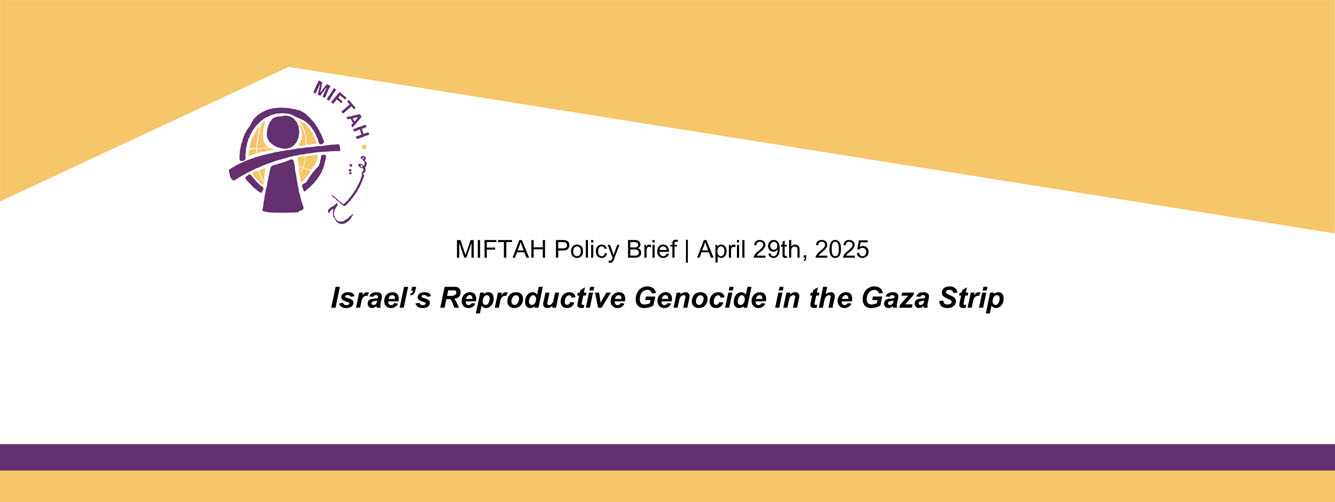Summary
During the past year, Israel’s decision to withdraw Jewish settlers and troops from Gaza has attracted the attention of the international community. This focus of attention on Gaza has allowed Israel to continue with the construction of the wall in Palestinian territory, the expansion of settlements and the de-Palestinization of Jerusalem with virtually no criticism. This report focuses principally on these matters.
Although uncertainty surrounds the full extent and consequences of Israel’s withdrawal from Gaza, it seems clear that Gaza will remain occupied territory subject to the provisions of the Geneva Convention relative to the Protection of Civilians in Time of War, of 12 August 1949 (Fourth Geneva Convention) as a result of Israel’s continued control of the borders of Gaza. The withdrawal of Jewish settlers from Gaza will result in the decolonization of Palestinian territory but not result in the end of occupation.
In its advisory opinion of 9 July 2004, the International Court of Justice held that the wall currently being built by Israel in the Occupied Palestinian Territory is contrary to international law. It accordingly held that construction of the wall should cease and that those sections of the wall that had been completed in the Occupied Palestinian Territory should be dismantled. The Government of Israel has paid no heed to the advisory opinion and continues with the construction of the wall.
The wall has serious consequences for Palestinians living in the neighbourhood of the wall. Many thousands are separated from their agricultural lands by the wall and are denied permits to access their lands. Even those who are granted permits frequently find that gates within the wall do not open as scheduled. As a result, Palestinians are gradually leaving land and homes that they have occupied for generations.
Most Jewish settlers in the West Bank are now situated between the Green Line (the accepted border between Israel and the Occupied Palestinian Territory) and the wall. Moreover, existing settlements in this zone — known as the “closed zone” — are expanding and new settlements are being built. Emboldened by the support they receive from the Government and the Israel Defense Forces (IDF), settlers have become more aggressive towards Palestinians and settler violence is on the increase.
The construction of the wall, the de-Palestinization of the “closed zone” and the expansion of settlements make it abundantly clear that the wall is designed to be the border of the State of Israel and that the land of the “closed zone” is to be annexed.
Israel has embarked upon major changes in Jerusalem in order to make the city more Jewish. Jewish settlements within East Jerusalem are being expanded and plans are afoot to link Jerusalem with the settlement of Ma’aleh Adumim with a population of 35,000, which will effectively cut the West Bank in two. Palestinian contiguity in East Jerusalem is being destroyed by the presence of Jewish settlements and byhouse demolitions. Some 55,000 Palestinians presently resident in the municipal area of East Jerusalem have been transferred to the West Bank by the construction of the wall. The clear purpose of these changes is to remove any suggestion that East Jerusalem is a Palestinian entity capable of becoming the capital of a Palestinian State.
The international community has proclaimed the right of the Palestinian people to self-determination and the need to create a Palestinian State living side by side in peace and security with Israel. This vision is unattainable without a viable Palestinian territory. The construction of the wall, the expansion of settlements and the de-Palestinization of Jerusalem threaten the viability of a Palestinian State.
The occupation of the Occupied Palestinian Territory continues to result in major violations of human rights. There are some 8,000 Palestinian prisoners in Israeli jails, whose treatment is alleged to fall well below internationally accepted standards. Freedom of movement is radically undermined by over 600 military checkpoints. Social and economic rights are violated. A quarter of the Palestinian population is unemployed and half the population lives below the official poverty line. Health and education services suffer and Palestinians have severe difficulties in accessing safe water. Housing remains a serious problem as a result of house demolitions conducted by the IDF in previous years. Women suffer disproportionately from these violations of human rights.
In 2004 the International Court of Justice handed down an advisory opinion in which it condemned as illegal not only the construction of the wall but many features of the Israeli administration of the Occupied Palestinian Territory. The advisory opinion was endorsed by the General Assembly on 20 July 2004 in resolution ES- 10/15. Since then little effort has been made by the international community to compel Israel to comply with its legal obligations as expounded by the International Court. The Quartet, comprising the United Nations, the European Union, the United States of America and the Russian Federation, appears to prefer to conduct its negotiations with Israel in terms of the so-called road map with no regard to the advisory opinion. The road map seems to contemplate the acceptance of certain sections of the wall in the Occupied Palestinian Territory and the inclusion of major Jewish settlements in the Occupied Palestinian Territory in Israeli territory. This process places the United Nations in an awkward situation as it clearly cannot be a party to negotiations that ignore the advisory opinion of its own judicial organ.
To view the Full Report as PDF (96 KB)







